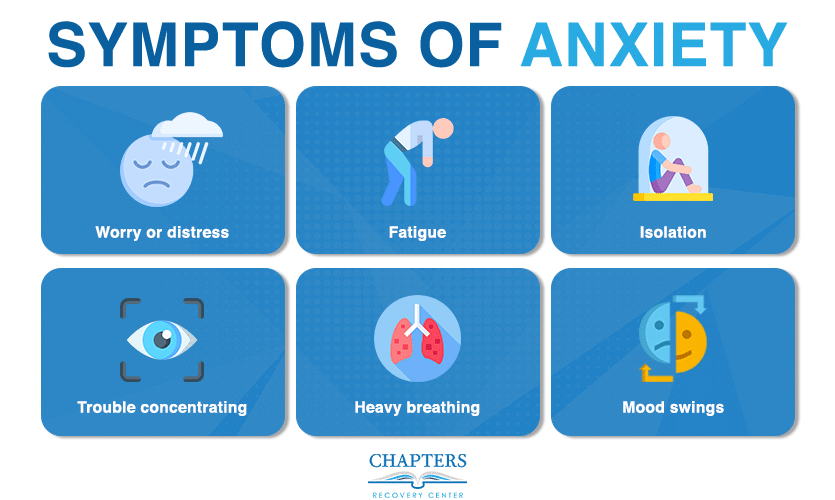A holistic approach to alcoholism treatment focuses on healing the person as a whole and treats individual underlying symptoms. The goal is to find balance in harmony and life in order to find a purpose and motivation to obtain from alcohol abuse. Through holistic programs, people feel more fulfilled and well-rounded as they are able to engage in new experiences and find positive new ways to enjoy life.
Addiction is not just about the physical cravings related to substance abuse. In many cases, it’s related to the environment that someone is surrounded by as well as their physical and mental well-being.
What are the Benefits of Holistic Alcohol Addiction Treatment?
Engaging in holistic programs to overcome alcohol abuse can benefit individuals in the following ways:
- Boost overall self-confidence and self-image
- Improves a person’s social group(s)
- Makes alcohol seem less appealing
- Improves an individual’s resistance to alcohol
- Encourages more physically active behavior
- Restores your overall mental, physical, and emotional balance
- Overall health will improve
- You’re more empowered to make positive life changes
A holistic approach to alcoholism treats the entire person, not just the symptoms related to addiction. For a more comprehensive treatment experience, holistic therapy is often combined with traditional alcohol treatment programs and therapies.
What Types of Holistic Treatment Can Help Individuals Recover From Alcoholism?
 Holistic alcohol treatment can be divided into five categories. Many programs will overlap in benefits, but program types include:
Holistic alcohol treatment can be divided into five categories. Many programs will overlap in benefits, but program types include:
- Spiritual
- Mental
- Physical
- Emotional
- Nutritional
When considering a holistic approach to alcoholism it’s important to be open-minded. As with any form of treatment you have to be fully invested in making a change in order for the treatment to be effective. Overcoming alcohol use disorder requires dedication to changing your lifestyle and the effort to try new things. Many people have reported seeing great success in their alcohol treatment programs when they incorporated holistic therapy.
Types of Holistic Alcohol Treatment
Art therapy has been a main stable in addiction treatment for decades and its original application began in the 1940s. Individuals who participate in art therapy utilize a variety of media to engage in self-expression. These include:
- Sculpting
- Drawing
- Painting
- Paper mache
- Digital artwork creation
- Collaging
Through art therapy, people can understand thier alcohol abuse better as a form of expression. This can shine a light on emotions that people often find difficult to express in typical individual therapy sessions.
Biofeedback is a technique that helps people learn to control their body’s involuntary functions, such as heart rate and blood pressure. During biofeedback therapy, sensors are placed on the body to measure these bodily functions. The readings from the sensors are then fed back to the person so that they can learn to control them.
Biofeedback has been shown to be an effective treatment for alcoholism. In one study, people who received biofeedback therapy were more likely to stay abstinent from alcohol than those who did not receive the treatment.
This type of therapy uses horses to help people in addiction treatment learn about themselves and develop new skills. Equine therapy can help alcoholics build trust, develop self-confidence, and practice assertiveness. It can also teach people how to set boundaries and improve communication skills. Equine therapy aims to enhance the process of both physical and emotional healing from alcohol addiction.
Acupuncture is a traditional Chinese medical practice that involves the insertion of thin needles into the skin at specific points on the body. It is often used to treat pain, but it can also be effective in treating other conditions, such as addiction. Studies have shown that acupuncture can help reduce cravings and withdrawal symptoms in people who are trying to quit drinking. It can also help improve mood and sleep quality.
Massage therapy is a hands-on approach to health that can be used to relieve stress, improve circulation, and reduce pain. It can also be helpful in treating alcohol addiction. Massage therapy can help reduce cravings and withdrawal symptoms, as well as improve mood and sleep quality.
Massage has been proven to also increase dopamine and serotonin production, which is beneficial as many suffering from alcohol addiction have a depleted supply. Therefore massage will boost your overall mood.
Yoga is a form of exercise that helps to improve physical and mental well-being. Yoga is an ancient practice that combines physical exercises, mental meditation, and breathing techniques. Yoga can help reduce stress, improve flexibility and muscle strength, and increase feelings of well-being.
Research has shown that yoga can be helpful in treating alcohol addiction by reducing cravings, relieving anxiety, and improving self-esteem. Yoga can also help to improve sleep quality and increase self-awareness.
Wilderness therapy is a type of treatment that uses nature as a setting for healing. wilderness therapy can help people recover from addiction by teaching them new skills, such as teamwork and problem-solving. wilderness therapy can also help to reduce stress, improve mental well-being, and increase self-esteem.
Studies have shown that wilderness therapy can be effective in treating alcohol addiction by reducing cravings, improving mental health, and increasing self-awareness.
Meditation is a practice that involves focusing on one’s breath and letting thoughts pass through the mind without judgment. Meditation can help to reduce stress, improve focus and concentration, and increase feelings of well-being.
Research has shown that meditation can be helpful in treating alcohol addiction by reducing cravings, improving mental health, and increasing self-awareness.
Aversion therapy is a type of treatment that uses Pavlovian conditioning to help people overcome addictions. This therapy pairs an undesirable stimulus (such as a bad taste) with the addiction behavior (such as drinking alcohol). Over time, the person learns to associate the addiction behavior with the negative stimulus and eventually stops the addictive behavior.
Aversion therapy has been shown to be effective in treating alcoholism as well as other addictions.
Acupuncture is a traditional Chinese medicine technique that involves inserting thin needles into specific points on the body. Acupuncture is believed to stimulate the release of endorphins, which can help to reduce pain and improve mood.
Studies have shown that acupuncture can be effective in treating alcoholism. In one study, acupuncture was found to be more effective than the medication disulfiram (Antabuse) in reducing alcohol craving and consumption.
Guided imagery is a technique that involves using your imagination to picture yourself in a peaceful, relaxing setting. The goal is to provide peace for your mental state. Guided imagery has been shown to be effective in reducing stress and anxiety, which can help to reduce alcohol cravings. It can also promote relaxation and improve the quality of sleep.
Music therapy utilizes music for self-expression and to achieve therapeutic goals. This is very similar to the way that art therapy works for recovering alcoholics. Music therapy has been shown to be effective in treating a variety of mental health conditions, including anxiety, depression, and addiction. Music therapy can help to reduce stress, promote relaxation, and improve mood. It can also boost self-esteem and confidence, and provide a sense of accomplishment.
Spiritual guidance can come from a variety of sources, including clergy, therapists, and peers. This type of support can help those recovering from alcohol use disorder to find meaning in their lives and to connect with something larger than themselves. Spiritual guidance can also provide hope, comfort, and peace of mind.
Making dietary changes can help treat alcoholism by improving the way the body metabolizes alcohol. Eating a healthy diet can also help reduce cravings and withdrawal symptoms. Nutritional therapy is a holistic approach that uses nutrition to promote healing and wellness. Nutritional therapy can help to improve the overall health of the body and mind, which can in turn help to reduce alcohol cravings and consumption. Nutritional therapy can also help to improve mood, reduce stress, and promote relaxation.
Horticulture therapy is a type of therapy that uses plants and gardening to improve physical, mental, and emotional well-being. Horticulture therapy can help to reduce stress, improve mood, and provide a sense of accomplishment. Horticulture therapy can also help to increase self-esteem and confidence. Gardening can be a relaxing and therapeutic activity that can help to reduce cravings for alcohol and promote sobriety.
Acupuncture is a form of traditional Chinese medicine that involves the placement of thin needles into the skin at specific points on the body. Acupuncture is used to treat a variety of conditions, including pain, anxiety, and addiction. It can also provide detox benefits to patients. Acupuncture can help to reduce cravings for alcohol and promote the will to stay in recovery.
Studies have shown that acupuncture raises the level of endorphins which is what helps reduce alcohol cravings and withdrawals. Although traditional Chinese medicine refers to this as “balancing yin and yang energies.”
 Holistic alcohol treatment can be divided into five categories. Many programs will overlap in benefits, but program types include:
Holistic alcohol treatment can be divided into five categories. Many programs will overlap in benefits, but program types include:







